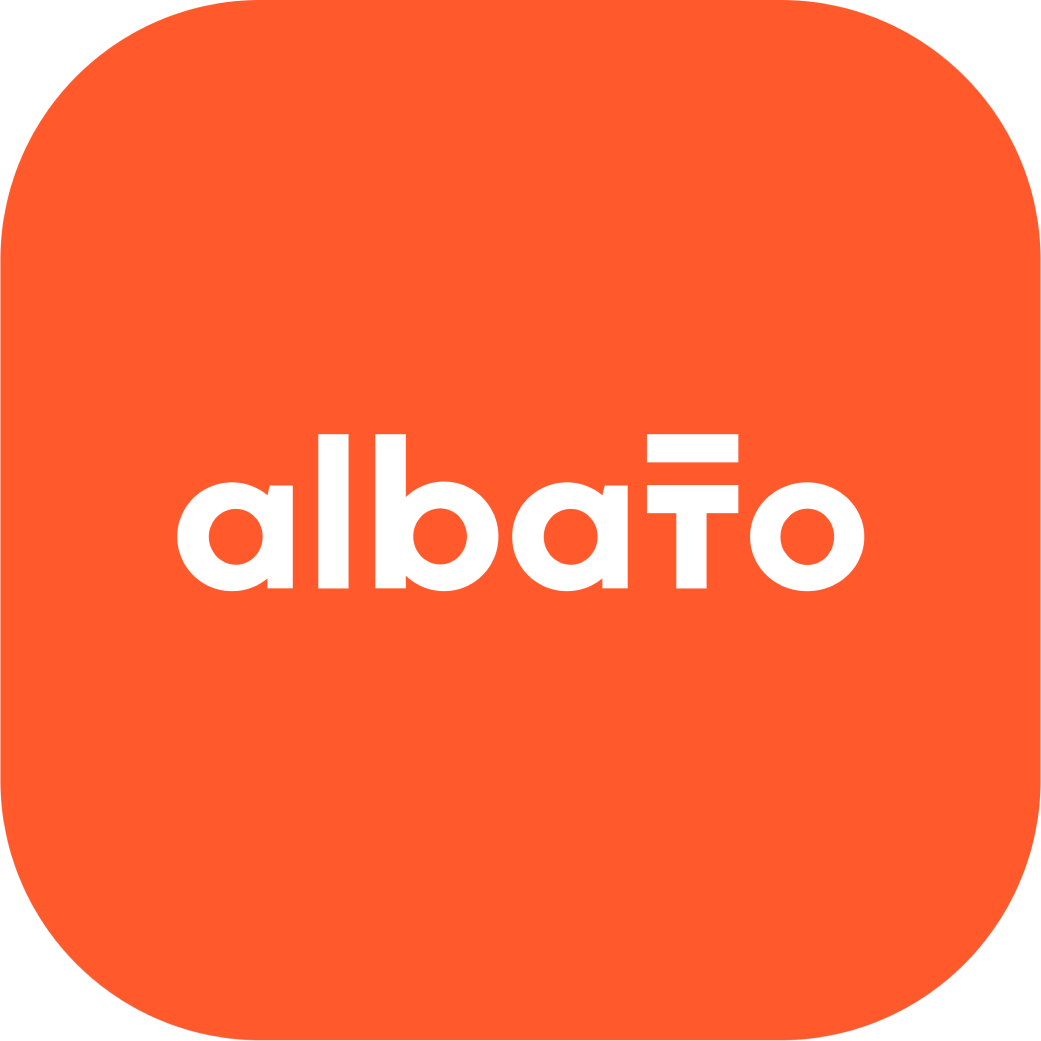
The media about startups in Portugal
7 questions for 1 startup: Jumble
Today is April 15, 2024. You're reading '7/1', Monday edition of Startupt
Hello! I'm Sergei Yakupov, founder of Startupt.co. And welcome to the very first issue of the "7/1" project — a gallery of startups from Portugal, which I'm creating as an application for the main newsletter Startupt about the startup ecosystem in Portugal. In "7/1" I will be introducing one startup, asking its founder seven diverse questions.
In the first issue — meet Tony Oreglia, co-founder of the startup Jumble. Jumble introduces a pioneering approach to digital journaling, aiming to enhance mental health and personal growth through interactive and insightful engagement with one's journal. By leveraging advanced AI technologies, Jumble seeks to transform the traditional journaling practice into a dynamic and reflective experience, positioning itself as a leader in the mental wellness and personal development arena.
IN PARTNERSHIP WITH:

Automate with no-code
Connect OpenAI with 600+ apps. Now all plans — 20% off.
📊 Market size. Quick look
According to Verified Market Reports, the digital journal apps market was valued at $3.4 billion in 2018, with a notable growth of 9.3% year-on-year, indicating value of $5.3 billion in 2023. This trend suggests a significant upward trajectory, with sales forecasted to expand at an 11.1% CAGR from 2023 to 2033, ultimately reaching a market size of $15.2 billion by the end of the projection period. These applications serve as modern platforms for users to digitally record their personal thoughts, ideas, experiences, and memories. This digital shift from the traditional method of journaling, which typically involved pen and paper, to a more contemporary, digital format is largely attributed to advancements in digital technology, including the integration of cloud computing.
The increasing adoption and popularity of digital journal apps can be attributed to several key advantages they offer over traditional journaling methods. Firstly, these apps provide unparalleled convenience and accessibility, enabling users to document their thoughts and experiences in real-time, regardless of their location. This marks a significant departure from the need to carry physical journals or notebooks. Furthermore, digital journal apps boast superior organizational capabilities, offering features such as searchable entries, tags, categories, and the organization of entries into folders. These technological advancements not only facilitate a more organized approach to journaling but also enhance the user experience by supporting multimedia integration. This allows for the inclusion of photos, videos, and audio recordings in journal entries, enriching the journaling experience and providing a more comprehensive digital record of users' lives.
💡 Jumble's pitch deck summary
Name: Jumble
Location: Lisbon
Problem Statement: Traditional hand journaling, while beneficial for mental health, lacks the capacity for interactive feedback and deep analytical insights into personal entries. Solution: Jumble emerges as the "Fitbit of Journaling," revolutionizing the journaling experience with features such as a journal co-pilot, interactive chats with surfaced insights from journal entries, and AI-assisted journal reviews. This platform not only fosters the habit of journaling but also enhances it by providing personalized insights and feedback.
Market Opportunity: Total Available Market (TAM): €600 Million. Serviceable Available Market (SAM): €130 Million. Serviceable Obtainable Market (SOM): €6.5 Million.
Competitive Landscape: Jumble distinguishes itself from competitors with its unique feature set, including manual journaling support, journal co-pilot, and interactive chat with journal insights. Competing products like AI Diary, Rosebud, and others offer a variety of features, but none offer Jumble's comprehensive suite.
Roadmap: Over the past 10 months, Jumble has developed from a pre-beta release to incorporating a journaling co-pilot feature and engaging in Draper University. The next six months will focus on new features and functionality including offline journaling so users can journal by import the entry by photo.
Business Model: Jumble operates on a B2C SaaS model with a freemium base offering unlimited journal entries and habit-building tools. The premium subscription, at €5 per month or €50 per year, includes additional features like personalized AI journaling prompts, an AI journaling assistant, and AI-assisted journal reviews.
Team: Founded by Tony Oreglia and Nuno Silva, with key team members including Fabio Mátias (Technical Advisor), Thalita Milan (Marketing Consultant), Lucas Soares (AI/ML Scientist), Kelley Oreglia (Artist), and Nuno Alecrim (Designer).
🧩 7 Questions with Tony Oreglia

Q: Can you walk us through how your app transforms daily journaling into actionable insights, and what makes it stand out in the crowded app market?
A: Our personal journals are full of memories, insights, and ideas, but it’s not always easy to look back at this personal history. Jumble opens up your journal by surfacing the embedded ideas, intentions, recurring questions, deep insights, dreams, fears, ideas, and more. Jumble also lets you chat directly with a reflection of your entire journal, so you can ask questions and investigate your own psychology as if talking to a self reflection. Jumble is the first journaling application to fully leverage LLM technology to assist with retrospective introspection and enable users to chat with their own journal.
Q: How does your app ensure user privacy and data security, especially considering the personal nature of journal entries?
A: Journaling is only effective if everything written is private, so security is a fundamental aspect of our product. All journaling data, insights, and embeddings are safeguarded with encryption both in transit and at rest. The AWS Key Management Service (KMS) is used for encryption keys, which is renowned for its secure key management and cryptographic protection. This ensures that your data is secure, and inaccessible to unauthorized access. Furthermore, key access is limited to Identity and Access Management (IAM) roles, which are strictly limited to necessary product functionality. This means that access to data is tightly controlled and restricted to specific roles, further enhancing the security of your data and preventing any potential breaches. Our interactions with OpenAI are fully anonymous and ephemeral. No personally identifiable information is ever stored or shared, ensuring that your privacy is maintained at all times.
Q: What inspired the creation of this journaling analysis app, and how does it reflect the team’s vision for mental wellness or productivity?
A: As humans we need growth to be happy. Growth comes in many forms, but it’s a necessary ingredient. That is a core belief we have at Jumble. One important form of personal growth results from thinking (introspection) and acting (on the insights). Introspection without action is not sufficient to improve one’s life and wellbeing. We built Jumble to help people identify actionable insights from their journal, and achieve growth through this process. The current product reflects thousands of conversations with journaling enthusiasts, hundreds of iterations, and our own experience as lifelong journalers. Ultimately it’s a tool and the whole process is in the hands of the users, but we hope Jumble helps in the process.
Q: How does the app’s technology, possibly including AI, work in understanding and interpreting users’ entries? Can you share any challenges you faced in its development?
A: The challenge is two-fold. First product (what to build) and then technology (how to build it). The product challenge is how to bring users the joy and nostalgia of looking back on old journals in a way that adds value. The vision and product experience of Nuno Silva (Jumble’s co-founder) has been essential to this process. The possibilities here are infinite. The solution is a mix of many discussions, customer interviews, design iterations, and our own experiences journaling. The technical challenge is to build secure, resilient and cost efficient infrastructure. Jumble stores vector embeddings securely (we run open source Chroma DB on our own EC2 in a private VPC) and maintain privacy in the integrations with LLM services. Of course, as a business all this must be done in a cost efficient way, which so far we’ve managed to do.
Q: What has been the feedback from early users of the app, and how have you incorporated this feedback into further development?
A: Customer feedback has a big influence on our direction of development. Recently, for example, many customers told us they love the platform but prefer to journal the old fashion way, with pen and paper. This is why we implemented offline journaling. This enables users to write by hand and upload the journal entry as an image directly to Jumble via email, where the analysis and embedding are done. Our users love this feature.
Q: In the context of Portugal’s startup ecosystem, what opportunities and challenges have you encountered while launching and growing your app?
A: Portugal is an excellent place to build a startup. We've benefited a lot from the Lisbon network, ecosystem (like Build up Labs startup studio) and the enthusiasm for entrepreneurship that is palpable in meetups and conferences held here in Portugal, like Web Summit. Registering a business in Portugal does require some paperwork and in person appointments, but nothing too difficult.
Q: Looking to the future, how do you plan to expand the app’s features or reach? Do you have any plans for international expansion or collaboration with other tech companies or mental health organizations?
A: Jumble journal is 100% focused on individual B2C users. We aim to expand the insights and analytics currently available to make Jumble the de-facto "backend" for your journal. In terms of reach, you can find us on twitter and various newsletters, we are leveraging social networks to reach users around the globe. We are also looking to bring on a founding team member with expertise in marketing and growth.
🎧 Music to go deep
This playlist will help you to get inspired to journal and to catch the proper mood for journaling: Spotify Playlist
Norah Jones - "Sunrise": Its gentle melody and lyrics capture the essence of starting anew, much like the beginning of a journal entry.
Bon Iver - "Holocene": The song's introspective ambiance is perfect for deep reflection and contemplation.
Sigur Rós - "Sæglópur": Its ethereal sound invites listeners into a state of introspection and emotional exploration.
Leonard Cohen - "Famous Blue Raincoat": The song's narrative and reflective tone make it a fitting backdrop for writing personal entries.
Tracy Chapman - "Fast Car": Represents longing and the pursuit of change, themes often explored in journal entries.
James Taylor - "Fire and Rain": Speaks to the human experience of facing challenges and finding solace, much like journaling does
Joni Mitchell - "River": Its emotional depth is ideal for exploring personal thoughts and feelings in a journal.
Ben Howard - "Old Pine": Evokes the comfort and warmth of nostalgia, encouraging reflective journaling.
Iron & Wine - "Tree by the River": The nostalgic lyrics and acoustic melody evoke memories and past reflections.
Fleetwood Mac - "Landslide": This classic reflects on personal change and self-discovery, mirroring the introspective nature of journaling.
That's all for today! See you next week. And don't forget to check your email on Thursday — you'll find a regular Startupt.co newsletter with the most important news about startup industry in Portugal.
Have some news? Share with us (it's free!).
Use this forms: if you are startup, if you raised, if your are VC, incubator.
